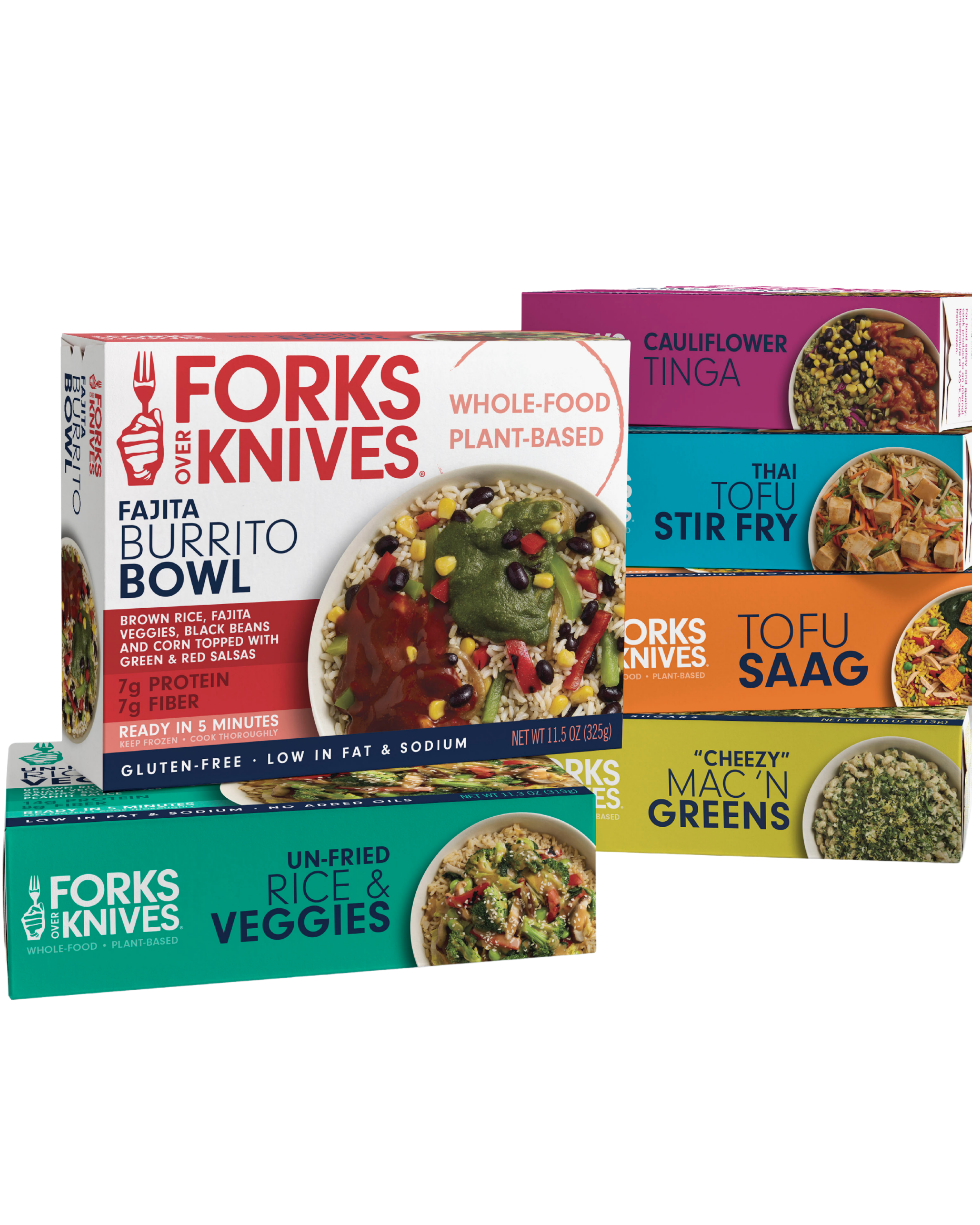Increasingly, people are realizing that what we put on our plates can have more of an impact on our health than most pills or procedures. For some, making personal changes around food is daunting in and of itself. Add to that the job of feeding an entire family, and it may feel downright impossible. Between picky eaters, demanding schedules, and varying tastes, it’s easy to see how creating family meals that nourish both body and soul seem unattainable. Speaking on a personal level I know that transitioning to a plant-based diet is not always smooth sailing. Here are some tips and lessons I’ve learned to help you feed your family without losing your mind.
For those who are new parents or have very young children, it’s much easier to have a positive influence on their food choices.
1. Be a role model!
If your toddler sees you slurping down a juicy mango or eating crisp snap peas with delight, it’s going to look much more appealing. In short, walk the talk. Those little creatures are smart, and they’ll figure it out if you’re not authentic.
2. Offer a variety (but not too many!) of great choices.
Provide two to three choices without placing any attachment to either choice. Apples or banana for snack? Let them have a say, but set them up for success.
3. Don’t be a short-order cook.
I’ve made this mistake myself, so I say this with much personal experience. Make one meal for the whole family, with small accommodations as needed (i.e., spice level, food allergies, size of bites, etc.). If you start out making something different for everyone at the table, this will become your reality on a daily basis. And that’s just exhausting.
4. Be patient and calm when introducing new foods.
Remember it can take upwards of ten times for a child to enjoy a new food. Try to keep the mood pleasant and certainly avoid getting into food battles. If you have school-aged children or adolescents who have firm preferences (and dislikes!), it can be a bit more challenging.
5. Invite instead of impose.
Nobody likes to be told what to do. If you’ve made some personal changes and are excited to share them with your family, don’t be surprised if not everyone jumps on board right away. The first step may simply be to have a large salad at every meal, making sure to include foods that you know will be greeted with joy.
6. Don’t be sneaky.
In addition to being told what to do, nobody likes to be tricked. The few leaves of hearty kale you covertly mixed into their morning smoothing could backfire. If little ones detect bitterness or a less sweet version of their favorite smoothie, they will learn to distrust your offerings. A different approach could be: “I’ve added a secret ingredient, and I’m wondering if you can figure out what is?” or allow them to throw in as many leaves of spinach that they’d like and gradually work your way up.
7. Make it fun and creative.
Turning anything into a “bar” (i.e., salad, taco, rice bowls, etc.) is great way to get kids to try new ingredients or combinations. It also gives them some control over the meal by allowing them to add which and how much of each ingredient.
Although it sounds cliché, I find that when kids are actively involved with the food (from menu planning and shopping to chopping and simmering), they feel more invested and a part of the whole process. A quick example that comes to mind is our family’s search for the perfect pesto. Many store-bought pestos contain dairy and my son is allergic to tree nuts. So, he decided he would search for a nut-free pesto recipe. We made a few small changes and together created a spinach-basil pesto that has become a family favorite. Don’t feel pressured to have them involved with every meal. I like to think of it as an open door policy—they are welcome anytime! Sometimes it’s as involved as helping to cook an entire meal and other times it’s just wanting to have the fun of sautéing some onions or giving a quick stir to a soup.
8. Be a good listener.
If your child really dislikes something, be willing to hear them out and offer a reasonable substitute. I’m not talking about being a short-order cook (see above!), but if there is something you can do that makes the meal more enjoyable, go for it! One of my kids really dislikes warm or sautéed snap peas. So when I make a stir-fry, I set aside a handful of snap peas so that he can enjoy them raw.
9. Focus on the journey.
I would argue that as important as it is to fuel our families with nutritious foods, we have an even greater responsibility as parents to teach our kids about food choices so that they can make good decisions away from our dinner tables. Pushing one more bite of greens or two more bites of anything is not the end goal. Don’t forget that food and family meals connect us. Yes, food should be nutritious. But it should also be delicious and most definitely shared. It’s not always easy to do, but when we focus more on the conversation than the number of bites of broccoli, everyone feels more relaxed.
(RELATED: Why Moms Should Want Vegan Children)
10: Be kind to yourself and have patience.
We are all just learning, experimenting, and growing. When things don’t go smoothly or are downright disastrous, be flexible and ask your troop for their ideas and help.
(RELATED: Diet, Children, and the Future)
Related News
Get Our Best Price On The Forks Meal Planner

Forks Meal Planner takes the guess work out of making nutritious meals the whole family will enjoy.
Master Plant-Based Cooking!

Our new course features over 100 lessons, 50+ recipes, downloadable guides, and more!
New Frozen Meals!

Introducing our new frozen meals: Doctor-recommended, chef-crafted, & ready in minutes.




